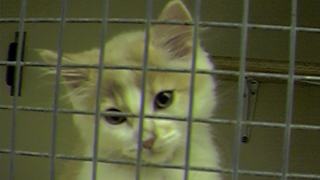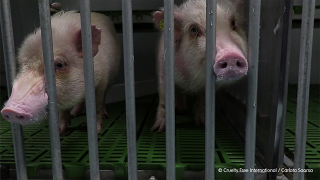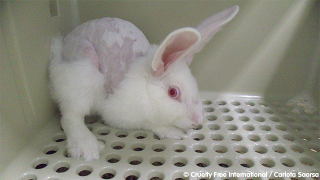Study shows testing drugs on one animal doesn’t predict correct results in another
A new scientific paper published today looks at whether tests on animals, including monkeys, can predict human reactions. The paper shows that testing the effects of drugs on one animal doesn’t reliably predict what would happen to any other. It reveals that drug tests on monkeys are just as poor as those using any other species in predicting the effects on humans. The chances of a getting it right are no better than a coin-toss.
The study, by FRAME Life President Professor Michael Balls and Dr Jarrod Bailey and Michelle Thew of Cruelty Free International, was published in the scientific journal ATLA (Alternatives to Laboratory Animals). The authors argue that animal testing for human drugs is not ‘fit-for-purpose’. They hope the paper will lead to discussions in the pharmaceutical industry about using more reliable testing methods not involving animals.
Michelle Thew, CEO of Cruelty Free International, said: “We have always known that animal experiments are not ethically justifiable, and this latest research adds to our body of work demonstrating that using animals to test drugs for humans is not scientifically justifiable either. We call on governments, regulators and the pharmaceutical industry to recognise the failure of animal research and to embrace humane and human-relevant methods for developing drugs.”












